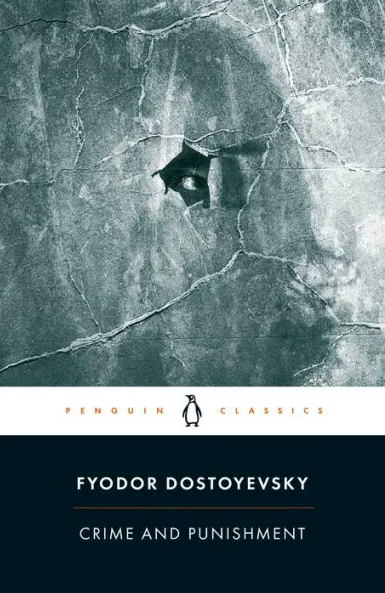Photo Courtesy of Penguin Publishing Group
What makes it a classic is how bad it makes you feel.
Zoyeb Ehsan, Contributor
I have been reading Fyodor Dostoyevsky’s Crime and Punishment since high school, but I only finished it during this past Winter break. Although it’s a novel that was truly special and engrossing, I’m honestly glad I’m done with it. I really don’t have any intention of returning to it, which is a strange thing to say about a supposedly great novel. It was utterly miserable… which is why it’s so terrific.
Raskolnikov, the novel’s protagonist, commits the titular crime early in the story, while the rest of the novel shows how he deals with what he’s done. He evades traditional punishment but experiences overwhelming mental torture, which is arguably far worse. I’m not entirely sure how Dostoyevsky does it, but he manages to transfer Raskolnikov’s guilt and anguish off the page and onto the reader. I knew that I wasn’t the only one who felt this way after I read Robin Feuer Miller’s afterword for the novel. She writes, “I first read Crime and Punishment in the autumn of 1962. I was fifteen. At that time my primary reaction was one of physical nausea combined with an inability to put the book down. I was in a bad mood for weeks after finishing it. The smell of fresh paint was no longer attractive; it made me think of murder and the terror of blurting out something secret by mistake.”
The last part of what she says resonates with me especially. While reading the book, you almost feel like you committed Raskolnikov’s crime and that you are now trying not to get caught. You feel as though you are Raskolnikov, so you feel the same guilt and regret. Raskolnikov is characterized as a bright young man who’s had to give up his law studies due to poverty, someone with great potential. So when he commits his heinous crime and effectively throws away his potential, the reader feels the same despair. With that, a message that I think Dostoyevsky was trying to convey is that no matter what gifts or abilities a person may have, if one doesn’t take care of them and keep out of trouble, they can simply be wasted. Thus, the book, to me, serves as a cautionary tale — a warning about where arrogance and transgression can lead. The novel reminds the reader of the preciousness of life and how one must be earnest to make the most of it.
However, this is just one aspect of the book. There is so much to talk about, such as the aspects of Raskolnikov’s philosophy which prompt his crime. Additionally, the book is fascinating in the way Dostoyevsky chooses to tell the story. I can only wonder how the book reads in its original Russian. I am studying Russian at here at U of T, so maybe I’ll be able to read it in the future. All in all, Crime and Punishment is considered a classic for a reason. Dostoyevsky’s talent as a storyteller is truly undeniable.




